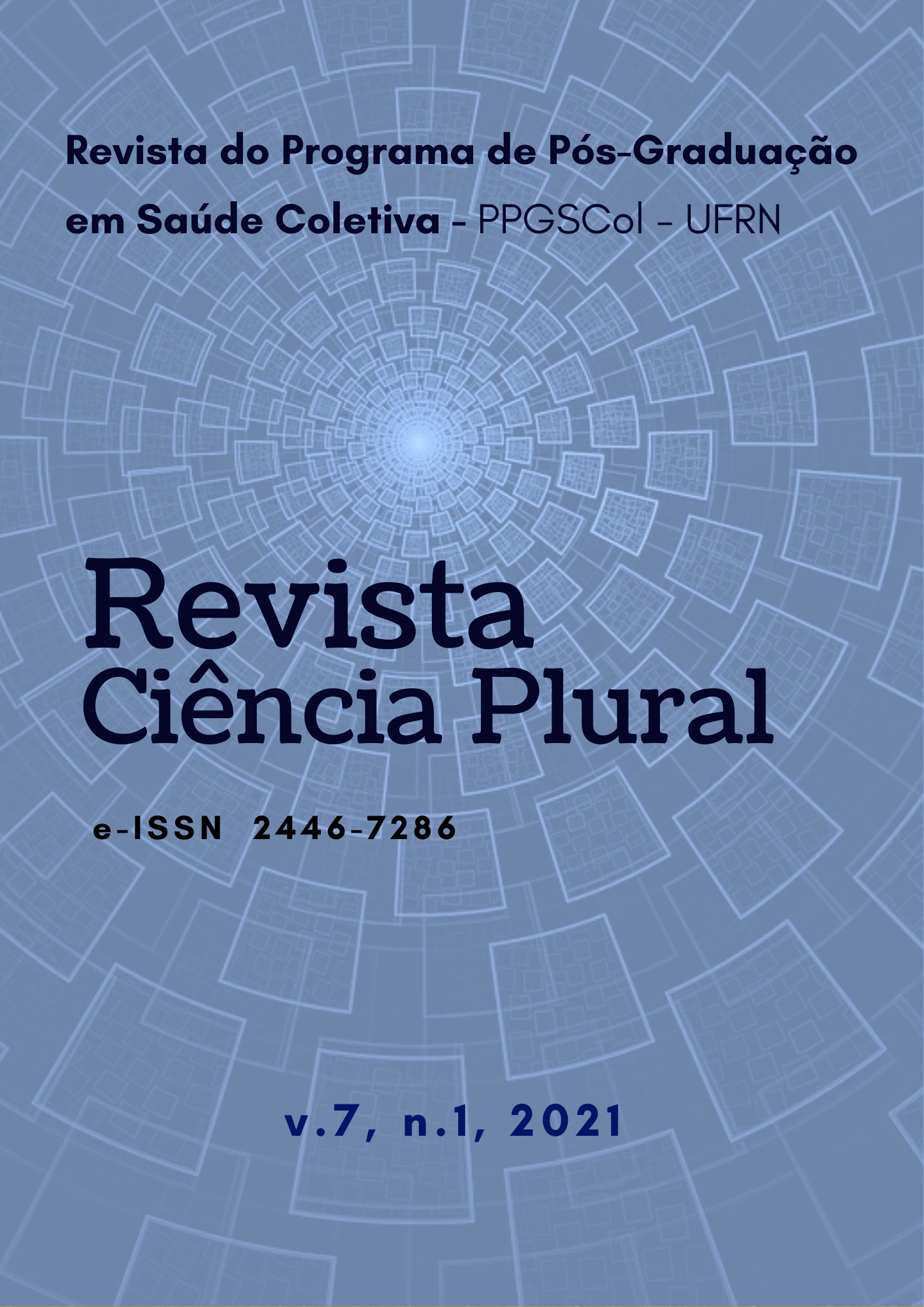A CONTRIBUIÇÃO DO PROJETO “INFOJOVEM” NA EDUCAÇÃO EM SAÚDE DE ADOLESCENTES
DOI:
https://doi.org/10.21680/2446-7286.2021v7n1ID21458Abstract
Introduction: Adolescence is a period in a person life cycle influenced by one’s vulnerability, passing through phases of growth and development at the physical and intellectual level, and deserves special attention from all those who deal with him/her. Objective: Discuss about an experience underwent by students and teachers, during their participation in a health prevention of adolescent’s extension project.Methodology: A descriptive study, more exactly an experience report, about the activities carried out by students and professors of the medical course at Centro Universitário Tiradentes- UNIT / AL[1], between April and June 2019, with adolescents from both genders and aged 12 to 18 years old, living in neighborhoods on the edge of Maceió. Conversation circles and audiovisual resources were used as facilitators techniques in the learning process. Results: The activities applied enable the formation of bonds, facilitating the integration of the target audience with the methodological proposal used during the meetings. Thus, it was possible to notice how beneficial the learning process was, with adolescents feeling excited being the protagonists in the experience during the meetings on screen. Conclusions: The educational practice with adolescents from a vulnerable social context, provided students and teachers reflections on the pleasant task of being knowledge facilitators. In addition, they realize the challenge of dealing with a group that is in formation and that has several relevant issues and conflicts on their own age.
Keywords: health education; adolescent health; public health.
Introduction: Adolescence is a period in a person life cycle influenced by one’s vulnerability, passing through phases of growth and development at the physical and intellectual level, and deserves special attention from all those who deal with him/her. Objective: Discuss about an experience underwent by students and teachers, during their participation in a health prevention of adolescent’s extension project.Methodology: A descriptive study, more exactly an experience report, about the activities carried out by students and professors of the medical course at Centro Universitário Tiradentes- UNIT / AL[1], between April and June 2019, with adolescents from both genders and aged 12 to 18 years old, living in neighborhoods on the edge of Maceió. Conversation circles and audiovisual resources were used as facilitators techniques in the learning process. Results: The activities applied enable the formation of bonds, facilitating the integration of the target audience with the methodological proposal used during the meetings. Thus, it was possible to notice how beneficial the learning process was, with adolescents feeling excited being the protagonists in the experience during the meetings on screen. Conclusions: The educational practice with adolescents from a vulnerable social context, provided students and teachers reflections on the pleasant task of being knowledge facilitators. In addition, they realize the challenge of dealing with a group that is in formation and that has several relevant issues and conflicts on their own age.
Keywords: health education; adolescent health; public health.
[1] University Center of Tiradentes - UNIT/AL.
Downloads
Downloads
Published
How to Cite
Issue
Section
License
À Revista Ciência Plural ficam reservados os direitos autorais referente a todos os artigos publicados.

 Português (Brasil)
Português (Brasil) English
English Español (España)
Español (España)










2.png)
